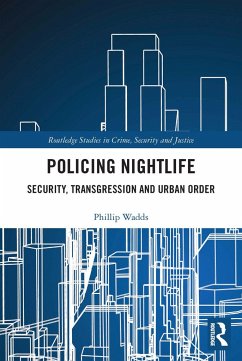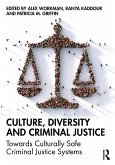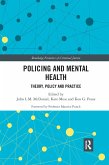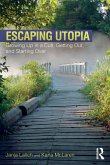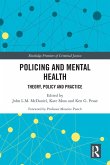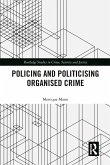Nightlife is a place of both real and imagined risk, a 'frontier' (Melbin 1978) where apparent freedom and transgression are closely linked, and where regulation of leisure and collective intoxication has been diffused throughout an expanding network of state and private actors. This book explores Sydney's contemporary night-time economy as the product of an intersection of both local and global transformations, as policing comes to incorporate more and more 'private' personnel empowered to regulate 'public' drinking and nightlife.
Policing Nightlife focuses on the historical and social conditions, cultural meanings and regulatory controls that have shaped both public and private forms of policing and security in contemporary urban nightlife. In so doing, it reflects more broadly on global changes in the nature of contemporary policing and how aspects of neoliberalism and the ideal of the '24-hour city' have shaped policing, security and night-time leisure. Based on adecade of research and interviews with both police and doorstaff working in nightlife settings, it explores the effectiveness of policies governing policing and private security in the night-time economy in the context of media, political and public debates about regulation, and the gendered and highly masculine aspects of much of this work.
An accessible and compelling read, this book will appeal to students and scholars of criminology, policing, sociology and those interested in understanding the debates surrounding security, policing and contemporary urban nightlife.
Policing Nightlife focuses on the historical and social conditions, cultural meanings and regulatory controls that have shaped both public and private forms of policing and security in contemporary urban nightlife. In so doing, it reflects more broadly on global changes in the nature of contemporary policing and how aspects of neoliberalism and the ideal of the '24-hour city' have shaped policing, security and night-time leisure. Based on adecade of research and interviews with both police and doorstaff working in nightlife settings, it explores the effectiveness of policies governing policing and private security in the night-time economy in the context of media, political and public debates about regulation, and the gendered and highly masculine aspects of much of this work.
An accessible and compelling read, this book will appeal to students and scholars of criminology, policing, sociology and those interested in understanding the debates surrounding security, policing and contemporary urban nightlife.
This book is based on a landmark, ethnographically grounded and historically nuanced study of Sydney's shifting symbolic and real struggles over respectable and disrespectable night leisure. It traces the long-term contradictions in these conflicts and vexed debates about popular intoxication and nightlife. In particular, it draws out key aspects of the masculine violence of drinkers and revellers, and the irony of how these are mirrored in the work practices of police and private security that now unfold against a backdrop of reasoned and shrill demands for greater public safety in the city after dark. Policing Nightlife is an original and key text for anyone with an interest in the contested politics, violence, safety, and governance of the urban night-time economy. - Professor Stephen Tomsen, Western Sydney University, Sydney, Australia.
Policing Nightlife provides a timely critical account of the dynamic and vital interface between public policing and private security operating in the night-time economy. For those interested in the pluralisation of policing, this book affords an important case study of the challenges that often materialise in the policing of transgressive spaces where diverse politics and interests often conspire to problematise public safety and undermine the effectiveness of policing partnerships. Grounded in a detailed study of Sydney nightlife, the analysis presented provides insights into wider, relevant themes that will resonate with those undertaking research into nightlife elsewhere in cities across the globe. - Professor Adam Crawford, University of Leeds, Leeds UK.
This book provides a deeply researched and fascinating insight into the policing and regulation of Sydney's nightlife. An historical exploration of Australia's drinking culture sets the context for an understanding of how the city's main drinking spaces have evolved. The regulatory history and trajectory of the infamous 'lock-out laws' is explained in its political context. Rigorously researched and argued chapters on media representations, the fragmentation and privatisation of policing and their cultures of hyper-masculinity set out the complexities inherent in the implementation of regulation. The author convincingly demonstrates the contradictions inherent in achieving an idealised 'civilised' nightlife within the framework of a neoliberal drive for growth. Researchers into the newly emerging field of night studies will find much to illuminate their knowledge and understanding within this book. - Professor Emerita Marion Roberts, University of Westminster, London UK.
Policing Nightlife provides a timely critical account of the dynamic and vital interface between public policing and private security operating in the night-time economy. For those interested in the pluralisation of policing, this book affords an important case study of the challenges that often materialise in the policing of transgressive spaces where diverse politics and interests often conspire to problematise public safety and undermine the effectiveness of policing partnerships. Grounded in a detailed study of Sydney nightlife, the analysis presented provides insights into wider, relevant themes that will resonate with those undertaking research into nightlife elsewhere in cities across the globe. - Professor Adam Crawford, University of Leeds, Leeds UK.
This book provides a deeply researched and fascinating insight into the policing and regulation of Sydney's nightlife. An historical exploration of Australia's drinking culture sets the context for an understanding of how the city's main drinking spaces have evolved. The regulatory history and trajectory of the infamous 'lock-out laws' is explained in its political context. Rigorously researched and argued chapters on media representations, the fragmentation and privatisation of policing and their cultures of hyper-masculinity set out the complexities inherent in the implementation of regulation. The author convincingly demonstrates the contradictions inherent in achieving an idealised 'civilised' nightlife within the framework of a neoliberal drive for growth. Researchers into the newly emerging field of night studies will find much to illuminate their knowledge and understanding within this book. - Professor Emerita Marion Roberts, University of Westminster, London UK.

